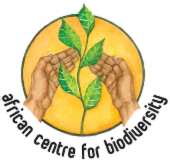Gates, Monsanto’s Water Efficient Maize for Africa project exposed as not Climate Smart, but corporate smart
(Click here for the PDF of the report)
This article comes courtesy of the Justice Initiative, a project of Ms. Heather Gray. We will be featuring commentaries and analyses on issues pertaining to Social Justice that are written and shared by Ms. Gray from time to time on this Website. Ms. Gray is the producer of “Just Peace” on WRFG-Atlanta 89.3 FM covering local, regional, national and international news. She lives in Atlanta, Georgia and can be reached at hmcgray@earthlink.net.
This article concerns a report that is highly critical of the Gates Foundation and its work in the area of “food security” in Afrika, work which has been reported to have heavily involved agribusiness corporate giant Monsanto. The report was recently published by the African Centre for Biodiversity out of South Africa, and is of great importance to all those who are concerned about the increasing proliferation of Genetically Modified (GM) food and the influence of large corporate biotech agribusinesses such as Dow, Syngenta and Monsanto. Readers who want to read related articles on this issue that we have published are invited to check out our articles on USAID, the threat to Afrika’s food supply, the Feed the Future Initiative, and the continuing struggle of the Black Farmers, also available on KUUMBAReport Online at our Free The Land Page.
The African Centre for Biodiversity
www.acbio.org.za
PO Box 29170
Melville 2109 South Africa
Tel: +27 (0) 11 486 1156
The African Centre for Biodiversity (ACB) has today (May 5, 2015) released a new report titled “Profiting from the Climate Crisis; Undermining Resilience: Gates and Monsanto’s Water Efficient Maize for Africa (WEMA) Project”. The report condemns the Gates Foundation and Monsanto’s WEMA project as nothing more than corporate “green washing,” designed to ensnare smallholder farmers into adopting hybrid and genetically modified (GM) maize in order to benefit seed and agro-chemical companies.
The WEMA project is being hailed as a ‘Climate Smart Agriculture’ (CSA) success story responding to the climate crises facing Africa. However, according to the ACB report, the WEMA project under the guise of philanthropy and fighting climate change, rather sits at the apex of efforts to completely transform African agricultural systems by exploiting decades-long public breeding in the public interest, and shifting ownership of maize breeding, seed production and marketing almost exclusively to the private sector.
The ostensible goal of the WEMA project is to produce GM and conventional hybrid drought-tolerant maize varieties for smallholder farmers in Sub Saharan Africa (SSA). WEMA is being heavily funded (a whopping US$ 85 million so far) by the Bill and Melinda Gates Foundation (BMGF), the Howard G. Buffett Foundation and USAID. Its key partners include Monsanto, the International Maize and Wheat Improvement Centre (CIMMYT) and the national agriculture research institutions (NARS) in each WEMA country, namely, Kenya, Tanzania, South Africa, Mozambique and Uganda.
According to Director of ACB, Mariam Mayet, “the fact that the WEMA project is being touted as a CSA case study is a shocking indication of how much ground has been lost to multinational agribusiness in the climate policy space in Africa and internationally.”
Eike Zaumseil, climate-expert of Bread for the World, adds: “The WEMA case justifies the fears of civil society that climate-smart agriculture provides a dangerous platform for corporations to implement industrial agriculture. Yet there is overwhelming evidence that industrial agriculture is destructive to people, biodiversity, seed, water, soils, and the climate. Cynically, farmers are encouraged to adopt unpredictable GM-monocultures, while abandoning their most valuable climate-asset, which is their traditional seed diversity.”
WEMA’s partners have made their best maize germplasm lines available to the project, with Monsanto ‘donating’ the drought-tolerant gene while retaining complicated intellectual property rights on it. Much of the germplasm from CIMMYT is the result of another Gates funded initiative, the Drought Tolerant Maize for Africa (DTMA) project. WEMA’s implementing partner is the industry backed African Agricultural Technology Agency (AATF).
According to Mayet, “the WEMA model will reach only a select subsidized layer of small-scale farmers. Further, the costs and technical requirements of both GM and hybrid seed production, currently beyond the reach of small African seed companies, will inevitably lead to industry concentration; enabling multinational agrochemical/quasi seed companies including and especially Monsanto, to dominate.”
The report also argues that Monsanto’s GM drought tolerant maize is likely to spell disaster for smallholder farmers as this will not perform predictably under conditions of environmental stress – ironically – exactly the kind of conditions it is meant to thrive in. According to Gareth Jones, the author of the paper, “The inclusion of Monsanto’s highly compromised and controversial insect resistant GM maize MON810 into the WEMA project is astounding given that this variety has already dismally failed both commercial and smallholder farmers in South Africa. ”
The Gates Foundation is playing a central role in the Green Revolution push in Africa. Aside from the US$85 million given to the WEMA project, it has also put around US$720 million into the Consultative Group on International Agricultural Research (of which CIMMYT is a member), close to US$ 100 million into the AATF, while many of the seed companies involved in WEMA have received support from the Foundation’s flagship project, the Alliance for a Green Revolution in Africa (AGRA).
The report calls on the Gates Foundation and other donors such as USAID, DfID, SIDA, and DANIDA to shift their funding streams away from these catastrophic Green Revolution interventions to genuine solutions that promote diversified and participatory research agendas, reflecting the plurality of agro-ecological conditions found throughout Africa.
Contacts:
Mariam Mayet: Tel: + 27 (0)83 269 4309
e-mail: Mariam@acbio.org.za
Gareth Jones: Tel: +27 (0) 11 486 2750 / +27 (0) 81 493 4323
e-mail: gareth@acbio.org.za
Eike Zaumseil: Tel: +49 (0)30 65211-1851
e-mail: eike.zaumseil@brot-fuer-die-welt.de

